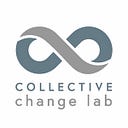Glimpses of hope and possibility
I was born in Bogotá, Colombia, amidst the relentless throes of war. Narco-guerrillas had added fuel to a generational war (some argue that our war spans the entirety of our post-colonial history), far right mercenary groups proliferated and government and military factions committed unspeakable atrocities against civilians. When I grew up, many of us had escape tunnels under our schools, most of us had a close relative or friend kidnaped, and it was not unusual to have felt in your bones the blasting of a bomb. Governmental decrees prohibited the use of helmets for motorcyclists, aiming to unmask sicarios, and my mother’s counsel for my first solo drive encapsulated the reality: “If someone tries to stop you, do not hesitate, run them over or crash into another car.” These are but the chronicles of a privileged teenager.
After I emigrated to the United States I met a tender man from Belfast, who eventually became my husband. His stories, though different from mine, felt very familiar. He told me tales of growing up in the thick of The Troubles, how would never, ever, ever take taxis or sit with his back to the door. He described childhood encounters where reciting the alphabet demanded a swift appraisal of the asker’s identity and a mental cataloging of the appropriate pronunciation for the letter “h,” as it varied with a school’s religious denomination. These are just the stories of a Catholic non-IRA family.
In the 25 years that we have been together, we have raised two beautiful boys and have enjoyed an adventurous life, all while yearning for our original homes every single day. In this time span, we have witnessed seismic shifts in our homelands. Not only both countries have signed unprecedented Peace Accords and Agreements, but, more significantly, we have seen how people who were previously at war, people who had perpetrated crimes against each other’s families, sat together to partake bread together, and sought shared meaning from their collective past.
On a recent trip to Colombia, I had the honor of co-facilitate a storytelling circle with ex-combatants, victims, members of peacebuilding organizations and local government officials. I witnessed them recount painful tales from divergent sides of history, yet discovering shared feelings and backgrounds. This was an experience that I never fathomed during my upbringing. In that room, these individuals recounted their personal stories and how they learned to cohabitate in the same municipality — Soacha. Sitting in that room, I could tell that all of these participants had some kind of meaningful power, whereas it was their lived experience, the resources that backed them, or the communities they represented. And we were that day, sitting on the floor and in circle, as equals. But what was most powerful were the dynamics that I experienced. People followed the process with deep honor and respect. Silences were respected, tears comforted, and stories held as sacred guiding the energy with profound respect.
I am not naive. Peace in Northern Ireland and Colombia remains elusive. Youths still perish in bonfires in Belfast around the 12 of July, and the Northern Ireland Assembly often incurs in prolonged suspension. While I know that the people from Soacha continue to collaborate closely forming their own somatic conflict resolution organization, they do not reflect the reality of other Colombian provinces, let alone our tense national politics. And yet, both Tony and I can now go to our countries and travel the land in ways that we could not do when we were growing up.
The path ahead is obscure and filled with uncertainty. Bridging the chasm of polarization can appear insurmountable. Tensions are raw in every social change area. Whereas you are working to put a dent in the opioid epidemic or in finding lasting solutions to homelessness crisis, every single argument can easily turn into a divisive fight. Nowadays we often feel on the verge of a precipice believing that unless we “hold the line” without compromise there can be no equitable solution or justice. And yet, there comes a moment when the pain is deep enough, when the time spent in battle is long enough, and we suddenly see that there can be another way, that there must be another way… a way where we can sit in a room and make meaning together.
Despite daunting realities, we often experience these glimpses of hope and possibility. Let us grasp firmly onto those moments of profound and authentic connection. In these instances, our blessings become a compelling reminder to honor those stories where those who once denied each other’s humanity, find each other in their journey and transform the way in which they engage with each other. They transform the dynamics of the power they hold.
